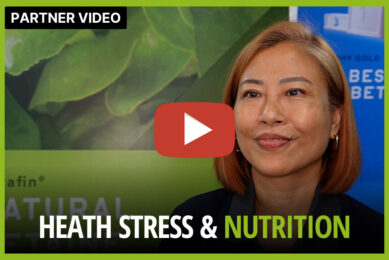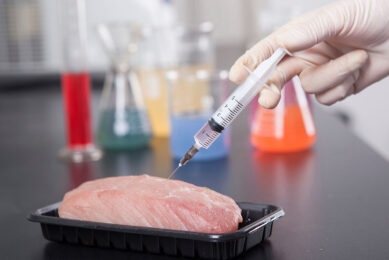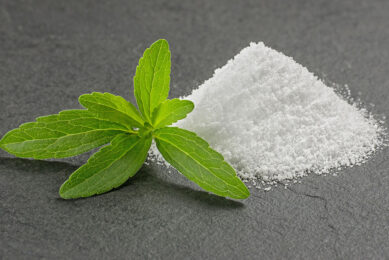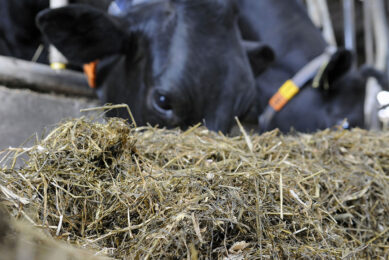Cows with heat stress profit from direct fed microbial

Heat stress negatively impacts milk yield and reproduction and therefore is a significant financial burden. Feed additives can reduce the economic consequences by boosting the milk yield, according to the Nutriad Group.
The economic losses to the dairy industry in the USA alone due to heat stress were estimated to be in the range of US$900 to 1,500 million a year. This figure represents a loss in the range of US$110 to 190 per cow per year. Hence implementing measures to alleviate heat stress and restore cow’s health and production efficiency will generate an interesting return on investment.
Feed additives strategy
The use of smart feed additives is one of the nutritional strategies to reduce the impact of heat stress on production and reproduction efficiency. “Because heat stress affects rumen, endocrine and metabolic function, additives that act at both levels (rumen and metabolism) can be employed to alleviate heat stress,” explains Dr Hassan Taweel, Nutriad Ruminant Manager. The Belgium company Nutriad developed a direct fed microbial product* based on two different strains of fungal extracts and two strains of yeast cultures.

For more in-depth articles on dairy production visit Dairy Global
More milk yield
The product has shown to be effective in stabilising rumen function and improving microbial growth and fermentation capacity. In vitro and in vivo tests showed that the direct fed microbial was effective in improving the growth rate of major bacterial and fungal species in the rumen (on average 20% increase in growth rate and 17% decline in doubling time). This in turn improves rumen microbial fermentation and increases microbial protein synthesis and fibre digestion, leading to 4 to 8% improvement in milk yield.
* Nutri-Ferm Prime
Join 26,000+ subscribers
Subscribe to our newsletter to stay updated about all the need-to-know content in the feed sector, three times a week. Beheer
Beheer









 WP Admin
WP Admin  Bewerk bericht
Bewerk bericht